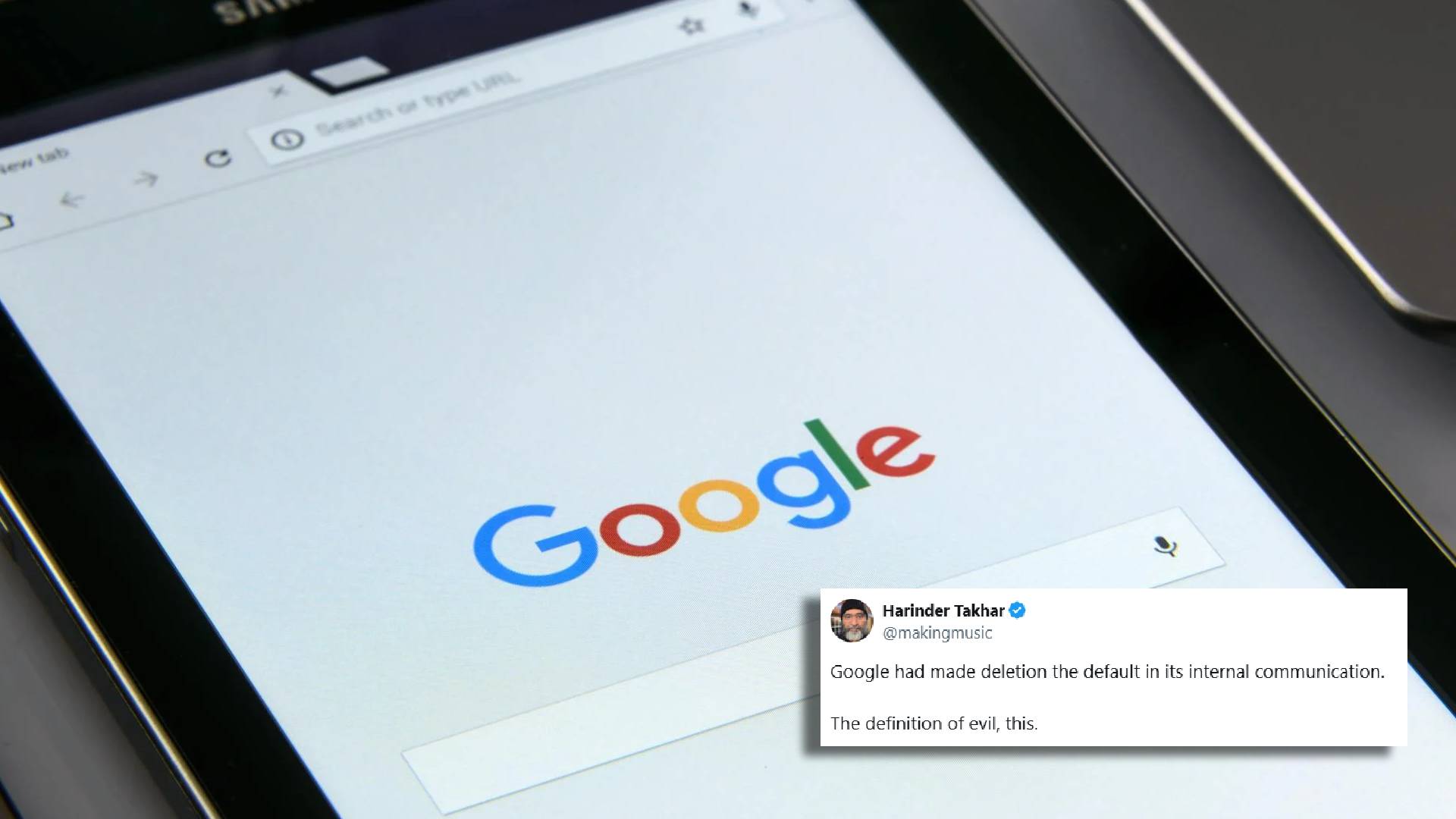Google’s workaround to avoid antitrust regulatory eyes is revelatory of a “culture of concealment.” The search engine giant engaged in its “don’t save anything” policy for over 15 years to avoid anything that showed the company in a bad light.
Per the New York Times, the Alphabet company has been deploying the strategy from as early as 2008, when it was embroiled in an antitrust suit over an advertising deal with its former rival Yahoo. In its internal memo to Googlers, the tech firm stated that the employees should refrain from sarcasm and speculations and not comment without having all the facts in order. The memo that was signed by Google’s top lawyer Kent Walker and engineer executive Bill Coughran, also advised the staff to think twice before writing. Even the internal communications were tweaked to “off the record,” with messages purged the next day, keeping no history. Per the report, Google encouraged employees to add “attorney-client privilege” even on documents that had no legal questions involved. In 2017 Google-owned YouTube’s chief business officer, Robert Kyncl, asked Susan Wojcicki if a “privileged doc” could be sent to the fax machine at home as they didn’t want to send it over mail. In one of the cases involving the company’s advertising technology, the Virginia district court’s judge noted that Google’s document retention policies are designed in such a way that “an awful lot of documents were likely destroyed.”
In an attempt to avoid antitrust lawsuits, Google systematically told employees over a 15-year-campaign to destroy messages, avoid certain words and copy lawyers as often as possible. https://t.co/Fa7DIgZHwi
— The New York Times (@nytimes) November 20, 2024
One judge called it “a frontal assault on the fair administration of justice.”@nytimes dives deep into Google’s systematic evidence destruction, featuring our letter calling on @StateBarCA to investigate Google legal chief Kent Walker. (1/3)https://t.co/fj8k0ac1T8
— American Economic Liberties Project (@econliberties) November 20, 2024
See Also: Google Could Be Forced To Sell Chrome Browser By DOJ Antitrust Lawsuit
See Also: ‘Google Is A Monopolist’: Google Loses Huge Antitrust Case Over Search
See Also: Apple Sued By The U.S. Department Of Justice For Antitrust Violations
“Definition of evil,” dubbed one netizen online taking a jibe at Google’s motto, “Don’t Be Evil.”
Google had made deletion the default in its internal communication.
The definition of evil, this.
Source: https://t.co/BoguX8fHd0
— Harinder Takhar (@makingmusic) November 20, 2024
Don’t be evil.
https://t.co/cTGn6gMekl
— Matthew Herper (@matthewherper) November 20, 2024
See Also: Google’s Internal Data Collection On Competing Apps Raises New Antitrust Questions
See Also: WhatsApp Slapped Rs 213 Crore Fine Over Sharing User Data With Other Meta Platform; Company To Challenge The Order
Cover Image: Pexels
